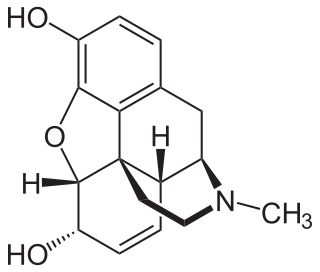
Substance abuse, also known as drug abuse, is the use of a drug in amounts or by methods that are harmful to the individual or others. It is a form of substance-related disorder. Differing definitions of drug abuse are used in public health, medical, and criminal justice contexts. In some cases, criminal or anti-social behavior occurs when the person is under the influence of a drug, and long-term personality changes in individuals may also occur. In addition to possible physical, social, and psychological harm, the use of some drugs may also lead to criminal penalties, although these vary widely depending on the local jurisdiction.
The Substance Abuse and Mental Health Services Administration is a branch of the U.S. Department of Health and Human Services. SAMHSA is charged with improving the quality and availability of treatment and rehabilitative services in order to reduce illness, death, disability, and the cost to society resulting from substance abuse and mental illnesses. The Administrator of SAMHSA reports directly to the Secretary of the U.S. Department of Health and Human Services. SAMHSA's headquarters building is located outside of Rockville, Maryland.
Drug rehabilitation is the process of medical or psychotherapeutic treatment for dependency on psychoactive substances such as alcohol, prescription drugs, and street drugs such as cannabis, cocaine, heroin or amphetamines. The general intent is to enable the patient to confront substance dependence, if present, and stop substance misuse to avoid the psychological, legal, financial, social, and physical consequences that can be caused.Citation needed
Self-medication, sometime called do-it-yourself (DIY) medicine, is a human behavior in which an individual uses a substance or any exogenous influence to self-administer treatment for physical or psychological conditions, for example headaches or fatigue.

Opioid use disorder (OUD) is a substance use disorder characterized by cravings for opioids, continued use despite physical and/or psychological deterioration, increased tolerance with use, and withdrawal symptoms after discontinuing opioids. Opioid withdrawal symptoms include nausea, muscle aches, diarrhea, trouble sleeping, agitation, and a low mood. Addiction and dependence are important components of opioid use disorder.

The National Institute on Drug Abuse (NIDA) is a United States federal government research institute whose mission is to "advance science on the causes and consequences of drug use and addiction and to apply that knowledge to improve individual and public health."
Substance dependence, also known as drug dependence, is a biopsychological situation whereby an individual's functionality is dependent on the necessitated re-consumption of a psychoactive substance because of an adaptive state that has developed within the individual from psychoactive substance consumption that results in the experience of withdrawal and that necessitates the re-consumption of the drug. A drug addiction, a distinct concept from substance dependence, is defined as compulsive, out-of-control drug use, despite negative consequences. An addictive drug is a drug which is both rewarding and reinforcing. ΔFosB, a gene transcription factor, is now known to be a critical component and common factor in the development of virtually all forms of behavioral and drug addictions, but not dependence.
Abdol Hamid Ghodse CBE was an academic in the field of substance abuse and addiction.
David C. Lewis was Professor Emeritus of Medicine and Community Health and the Donald G. Millar Distinguished Professor of Alcohol and Addiction Studies at Brown University.

Substance abuse prevention, also known as drug abuse prevention, is a process that attempts to prevent the onset of substance use or limit the development of problems associated with using psychoactive substances. Prevention efforts may focus on the individual or their surroundings. A concept that is known as "environmental prevention" focuses on changing community conditions or policies so that the availability of substances is reduced as well as the demand. Individual Substance Abuse Prevention, also known as drug abuse prevention involves numerous different sessions depending on the individual to help cease or reduce the use of substances. The time period to help a specific individual can vary based upon many aspects of an individual. The type of Prevention efforts should be based upon the individual's necessities which can also vary. Substance use prevention efforts typically focus on minors and young adults – especially between 12–35 years of age. Substances typically targeted by preventive efforts include alcohol, tobacco, marijuana, inhalants, coke, methamphetamine, steroids, club drugs, and opioids. Community advocacy against substance use is imperative due to the significant increase in opioid overdoses in the United States alone. It has been estimated that about one hundred and thirty individuals continue to lose their lives daily due to opioid overdoses alone.
Herbert David Kleber was an American psychiatrist and substance abuse researcher. His career, centered on the evidence-based treatment of addiction, focused on scientific approaches in place of punishment and moralisms. His career focused on pathology of addiction to help patients reduce the severe discomforts of withdrawal, avoid relapse and stay in recovery.

Substance use disorder (SUD) is the persistent use of drugs despite the substantial harm and adverse consequences to one's own self and others, as a result of their use. In perspective, the effects of the wrong use of substances that are capable of causing harm to the user or others, have been extensively described in different studies using a variety of terms such as substance use problems, problematic drugs or alcohol use, and substance use disorder. The National Institute of Mental Health (NIMH) states that "Substance use disorder (SUD) is a treatable mental disorder that affects a person's brain and behavior, leading to their inability to control their use of substances like legal or illegal drugs, alcohol, or medications. Symptoms can be moderate to severe, with addiction being the most severe form of SUD". Substance use disorders (SUD) are considered to be a serious mental illness that fluctuates with the age that symptoms first start appearing in an individual, the time during which it exists and the type of substance that is used. It is not uncommon for those who have SUD to also have other mental health disorders. Substance use disorders are characterized by an array of mental/emotional, physical, and behavioral problems such as chronic guilt; an inability to reduce or stop consuming the substance(s) despite repeated attempts; operating vehicles while intoxicated; and physiological withdrawal symptoms. Drug classes that are commonly involved in SUD include: alcohol (alcoholism); cannabis; opioids; stimulants such as nicotine, cocaine and amphetamines; benzodiazepines; barbiturates; and other substances.

Addiction is a neuropsychological disorder characterized by a persistent and intense urge to use a drug or engage in a behaviour that produces natural reward, despite substantial harm and other negative consequences. Repetitive drug use often alters brain function in ways that perpetuate craving, and weakens self-control. This phenomenon – drugs reshaping brain function – has led to an understanding of addiction as a brain disorder with a complex variety of psychosocial as well as neurobiological factors that are implicated in addiction's development. Classic signs of addiction include compulsive engagement in rewarding stimuli, preoccupation with substances or behavior, and continued use despite negative consequences. Habits and patterns associated with addiction are typically characterized by immediate gratification, coupled with delayed deleterious effects.
Addiction psychiatry is a medical subspecialty within psychiatry that focuses on the evaluation, diagnosis, and treatment of people who have one or more disorders related to addiction. This may include disorders involving legal and illegal drugs, gambling, sex, food, and other impulse control disorders. Addiction psychiatrists are substance use disorder experts. Growing amounts of scientific knowledge, such as the health effects and treatments for substance use disorders, have led to advancements in the field of addiction psychiatry. These advancements in understanding the neurobiology of rewarding behavior, along with federal funding, has allowed for ample opportunity for research in the discipline of addiction psychiatry. Addiction psychiatry is an expanding field, and currently there is a high demand for substance use disorder experts in both the private and public sector.

Mark S. Gold is an American physician, professor, author, and researcher on the effects of opioids, cocaine, tobacco, and other drugs as well as food on the brain and behavior. He is married to Janice Finn Gold.
Responsible drug use seeks to maximize the benefits and minimize the risks associated with psychoactive drug use. For illegal psychoactive drugs that are not diverted prescription controlled substances, some critics believe that illegal recreational drug use is inherently irresponsible, due to the unpredictable and unmonitored strength and purity of the drugs and the risks of addiction, infection, and other side effects.
Discrimination against drug addicts is a form of discrimination against people who suffer from a drug addiction.
Alongside the general opioid epidemic in the United States, there has been an increase in the number of incarcerated people in the United States experiencing opioid use disorder. Over half of the estimated 7 million incarcerated people in the United States meet the Diagnostic and Statistical Manual for Mental Disorders (DSM) criteria for substance use disorder, and only 20% receive treatment. To alleviate this problem, the United States Department of Corrections has implemented various treatment plans and programs for inmates.

Prescription drug addiction is the chronic, repeated use of a prescription drug in ways other than prescribed for, including using someone else’s prescription. A prescription drug is a pharmaceutical drug that may not be dispensed without a legal medical prescription. Drugs in this category are supervised due to their potential for misuse and substance use disorder. The classes of medications most commonly abused are opioids, central nervous system (CNS) depressants and central nervous stimulants. In particular, prescription opioid is most commonly abused in the form of prescription analgesics.






